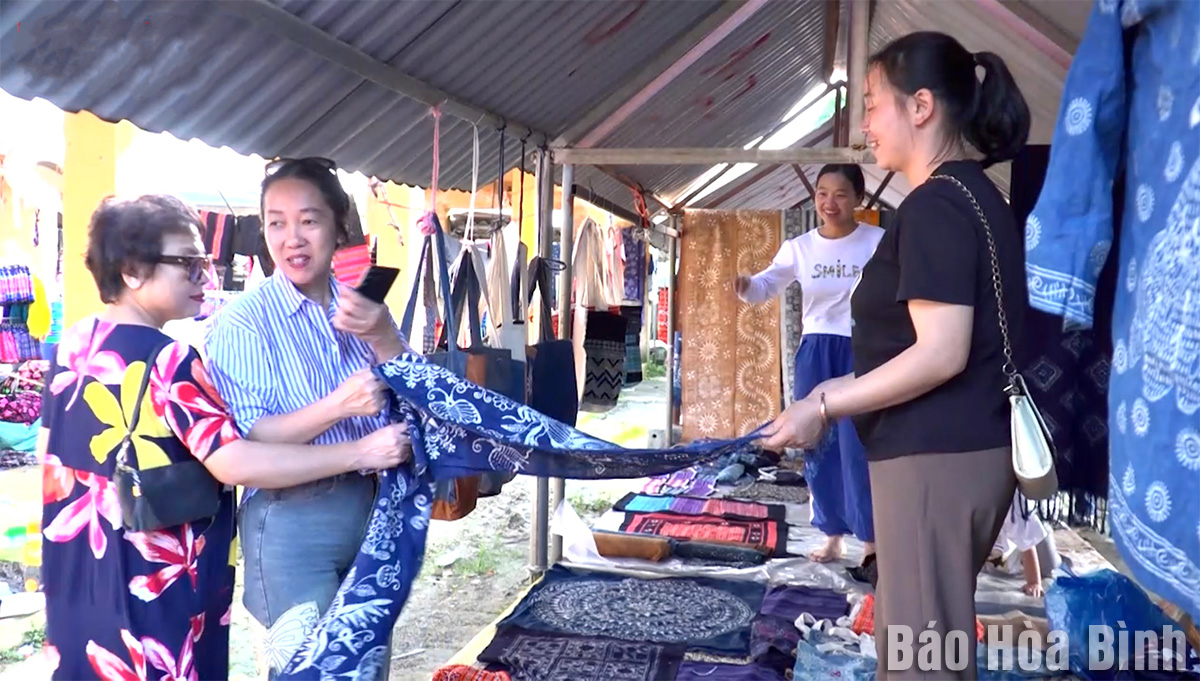



Tourists shop at the weekly Pa Co fair in Mai Chau.
Functioning as a hub for farm produce trade, cultural exchanges, and gatherings among the Mong ethnic people from Hang Kia and Pa Co villages in Mai Chau and Loong Luong in Son La province’s Van Ho district, the Pa Co fair convenes every Sunday, featuring relatively simple stalls offering local agricultural products, as well as essential items and tools closely associated with the community’s daily lives.
Nguyen Thi Trang, a visitor from Hanoi’s Ha Dong district, said on her first trip to Mai Chau, her friends recommended visiting the fair. "I was mesmerised by the vibrant colours of the clothing and goods displayed by people from various places. Although it's a weekly wet market, it feels like a Tet [Lunar New Year] one.” According to Trang, its diverse and culturally rich products showcased the essence of the Mong and Thai ethnic communities.
In December 2018, the Mai Chau People's Committee decided to implement the model of Mai Chau highlands wet-market fair, as part of the efforts to ensure orders and restore and promote the local traditional cultural identity for tourism development. This fair, unlike the Pa Co one, incorporates additional spaces for ethnic cultural arts.
Kimberly Keeton, an American citizen, said she was drawn to the simple and rustic life of the ethnic communities in Mai Chau and deeply impressed by the local traditional cultural aspects. Visiting its wet market offered her a chance to immerse herself in all of that and her family to experience the fascinating ethnic cuisine.
Ha Tuan Hai, head of the Mai Chau Ethnic Affairs Department, said there are currently 10 wet-market fairs taking place in the district on a weekly basis. To promote sustainable tourism and build trust among residents and tourists, local authorities place significant emphasis on strict management of food safety, hygiene, and goods origin, he affirmed. The allure of these ethnic markets signals positive developments in highland tourism, creating opportunities for the local ethnic communities to engage in trade and becoming a focal point in the local economic development.